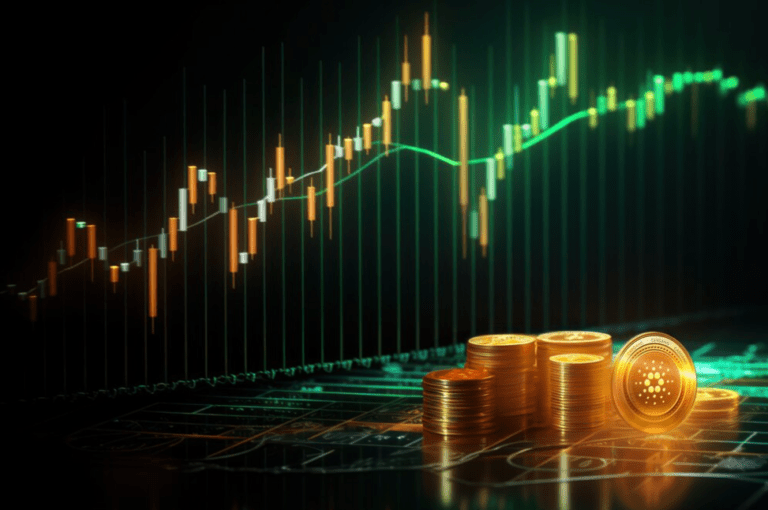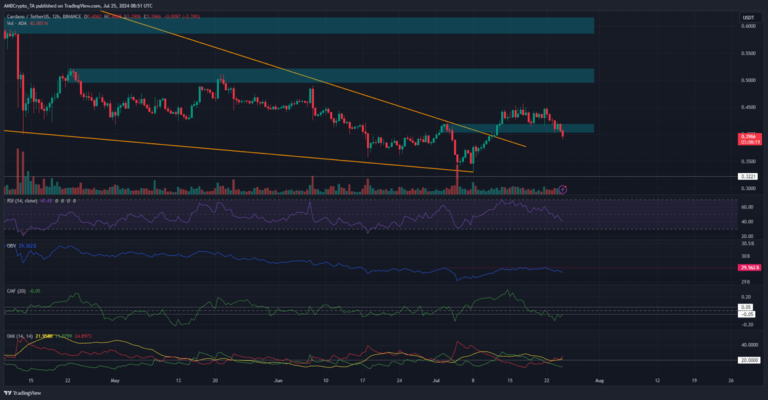
- Trump-backed memecoins like TRUMP and WLFI have attracted billions in speculation but remain volatile and risky.
- California’s DFAL law will impose licensing and compliance requirements on platforms serving state residents, with early enforcement already visible.
- Newsom’s satirical counterplay, the floated “Trump Corruption Coin,” reflects how memecoins are being weaponized in U.S. political battles.
In the high-stakes political arena of 2025, the clash between California Governor Gavin Newsom and former President Donald Trump is extending far beyond rallies, debates, and campaign ads. The new battleground? Political memecoins.
These digital tokens, often minted on Solana or Ethereum, blur the lines between satire, speculation, and politics. For Trump, crypto-themed branding has become another extension of his campaign presence. For Newsom, who recently floated the idea of a “Trump Corruption Coin,” memecoins are not just a joke but also a symbol of what he sees as Trump’s embrace of political spectacle over governance.
As the U.S. heads deeper into the 2025 election cycle, the rise of political tokens has captured the attention of regulators, traders, and policymakers alike. And nowhere is this more visible than in California, where Newsom’s Digital Financial Assets Law (DFAL) could reshape how memecoins operate.
Political Memecoins: The Rise of Satirical Finance
Political memecoins are cryptocurrencies themed around real-life politicians, parties, or campaign narratives. Unlike Bitcoin or Ethereum, their value comes less from utility and more from cultural sentiment, narrative momentum, and online community support.
The 2024–2025 cycle has seen an explosion of such tokens. Platforms like Pump.fun have made it easier than ever to launch a meme asset at low cost, resulting in thousands of short-lived political tokens. Most collapse within days, but a few — particularly those linked to Donald Trump — have drawn intense media and market attention.
A table of key milestones underscores how fast this niche has grown:
| Year | Event | Impact |
|---|---|---|
| 2024 | DJT token rumor cycle | Prices soared on speculation of Trump family ties before collapsing |
| 2024 | Over 200 Trump tokens launched in one week | Highlighted risks of impersonation and speculation |
| 2025 | TRUMP token launched on Solana | Multibillion-dollar valuations, VIP perks, heavy volatility |
| 2025 | WLFI launched (World Liberty Financial) | Massive volume, unclear distribution, sharp price swings |
This timeline reveals how political memecoins move with headlines — a volatility that makes them both attractive and dangerous.
Trump’s Crypto Playbook: Branding Meets Volatility
Donald Trump has leveraged crypto branding to strengthen his political image while appealing to retail traders. Three key projects define his crypto footprint:
- TRUMP Token (2025)
Launched around his inauguration, this Solana-based asset offered perks such as VIP dinners and merchandise. Its multibillion-dollar valuation underscored its hype-driven nature but also brought severe price swings. - The DJT Rumor Cycle (2024)
A separate Solana token surged on speculation of Trump family ties, but collapsed once no official link was found. It remains a cautionary tale for traders who mistake narrative for authenticity. - World Liberty Financial (WLFI, 2025)
Debuting in September 2025, WLFI saw heavy trading volume and volatility. Media reports suggested Trump’s family held nearly a quarter of the supply, though lockup and distribution details remain vague. Prices swung between $0.20–$0.30 in its first weeks.
Also Read: Trump’s Bold Crypto Move Sparks Market Surge, Sends Bitcoin Soaring
Trump’s strategy mirrors his political playbook: use branding, embrace spectacle, and dominate attention cycles. But as with politics, the risks for followers — in this case, investors — can be severe.
Why California Is Pushing Back
California is not sitting idly as political tokens proliferate. Under DFAL (Digital Financial Assets Law), signed into law through Assembly Bill 39 and Senate Bill 401, the state requires licensing and compliance for any firm offering digital asset services to its residents.
Key features of DFAL:
- Covers exchange, transfer, and custodial services.
- Enforced by the Department of Financial Protection and Innovation (DFPI).
- Compliance deadline extended from July 1, 2025, to July 1, 2026 (via AB 1934).
The first major enforcement action came on June 25, 2025, when DFPI fined Coinme $300,000 and required $51,700 in restitution. The move signaled a clear message: California will hold crypto firms accountable, even before the compliance deadline fully arrives.
For platforms listing memecoins like TRUMP or WLFI, this means that California users could trigger licensing requirements. Misleading promotions or unverified claims — both common in political token marketing — may fall under DFPI scrutiny.
Newsom’s Counterattack: The “Trump Corruption Coin”
At Politico’s Sacramento Summit in August 2025, Gavin Newsom hinted at creating a satirical “Trump Corruption Coin.” He framed it as parody, comparable to satirical merchandise rather than a real asset.
The symbolism, however, was sharp. By mocking Trump’s crypto branding, Newsom positioned himself as both a critic of Trump’s political style and a defender of regulatory guardrails.
Also Read: Bitcoin Drops 18% After Trump’s Inauguration Amid Institutional Sell-Offs and Market Uncertainty
Historical context adds depth here: during the French Revolution, locals circulated assignat notes with mocking slogans targeting rivals. Satirical currencies are not new — but in the digital era, they carry global visibility and real market consequences.
How Traders Should Approach Political Tokens
For investors tempted by the hype, political memecoins are story-driven first, financial assets second. A practical checklist can help reduce risk:
- Authenticity
Verify whether a campaign or politician has made an official statement. The DJT fiasco showed how speculation can collapse when denials surface. - Contract & Liquidity Controls
Check if ownership has been renounced, liquidity locked, and treasury wallets transparent. Insider concentration is a red flag. - Market Structure
Thin liquidity pools on DEXs can enable manipulation. Larger exchanges offer more reliability but don’t eliminate risk. - Branding & Impersonation
High-profile names attract countless copycats. Even tokens branded “official,” like TRUMP, should be treated with caution until proven otherwise.
The Bigger Picture: Crypto Meets Politics
The memecoin craze is only one piece of a broader shift. In 2024 alone, crypto-linked PACs spent over $130 million on congressional races, with Coinbase leading contributions. This financial presence, combined with meme-fueled political branding, suggests that crypto is no longer a fringe issue — it’s central to campaign strategy.
California, with its tech-heavy base and regulatory leadership, is likely to remain at the forefront of shaping how these tokens operate. The outcome of Newsom’s battle with Trump-themed assets could set precedents that ripple nationwide.
A Battle of Narratives, Not Just Tokens
Political memecoins thrive on narrative momentum, making them volatile, speculative, and often misleading. Donald Trump has embraced them as part of his brand, while Gavin Newsom has positioned himself as both regulator and satirist, countering Trump’s crypto presence with policy enforcement and parody.
With DFAL enforcement already underway and election season heating up, the collision between California’s regulatory push and Trump’s meme-driven politics highlights a deeper question: who controls the narrative when finance, politics, and satire collide on the blockchain?
For traders, the lesson is clear — treat political tokens as high-risk gambles, verify claims rigorously, and remember that in this new digital campaign battlefield, narrative moves markets faster than fundamentals.





